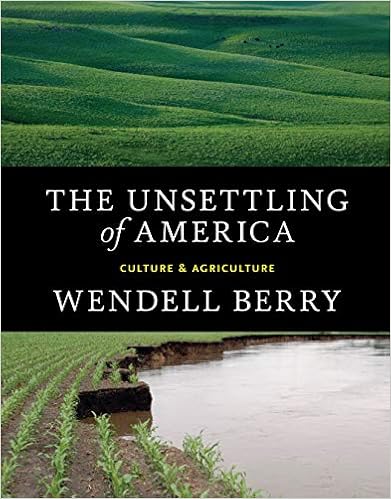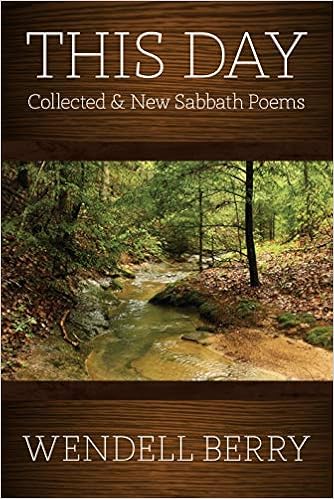Description
“Mr. Berry is a sophisticated, philosophical poet in the line descending from Emerson and Thoreau." ― The Baltimore Sun "[Berry’s poems] shine with the gentle wisdom of a craftsman who has thought deeply about the paradoxical strangeness and wonder of life." ― The Christian Science Monitor "Wendell Berry is one of those rare individuals who speaks to us always of responsibility, of the individual cultivation of an active and aware participation in the arts of life." ― The Bloomsbury Review “[Berry’s] poems, novels and essays . . . are probably the most sustained contemporary articulation of America’s agrarian, Jeffersonian ideal.” ― Publishers Weekly Wendell Berry is the author of fifty books of poetry, fiction, and essays. He was recently awarded the Cleanth Brooks Medal for Lifetime Achievement by the Fellowship of Southern Writers and the Louis Bromfield Society Award. For over forty years he has lived and farmed with his wife, Tanya, in Kentucky.
Features & Highlights
- An impassioned, thoughtful, and fearless essay on the effects of racism on the American identity by one of our country’s most humane literary voices.
- Acclaimed as “one of the most humane, honest, liberating works of our time” (
- The Village Voice
- ),
- The Hidden Wound
- is a book-length essay about racism and the damage it has done to the identity of our country. Through Berry’s personal experience, he explains how remaining passive in the face of the struggle of racism further corrodes America’s great potential. In a quiet and observant manner, Berry opens up about how his attempt to discuss racism is rooted in the hope that someday the historical wound will begin to heal. Pulitzer prize-winning author Larry McMurtry calls this “a profound, passionate, crucial piece of writing . . . Few readers, and I think, no writers will be able to read it without a small pulse of triumph at the temples: the strange, almost communal sense of triumph one feels when someone has written truly well . . . The statement it makes is intricate and beautiful, sad but strong.”
- “Mr. Berry is a sophisticated, philosophical poet in the line descending from Emerson and Thoreau.” ―
- The Baltimore Sun
- "[Berry’s poems] shine with the gentle wisdom of a craftsman who has thought deeply about the paradoxical strangeness and wonder of life.” ―
- The Christian Science Monitor
- “Wendell Berry is one of those rare individuals who speaks to us always of responsibility, of the individual cultivation of an active and aware participation in the arts of life.” ―
- The Bloomsbury Review
- “[Berry’s] poems, novels and essays . . . are probably the most sustained contemporary articulation of America’s agrarian, Jeffersonian ideal.” ―
- Publishers Weekly



